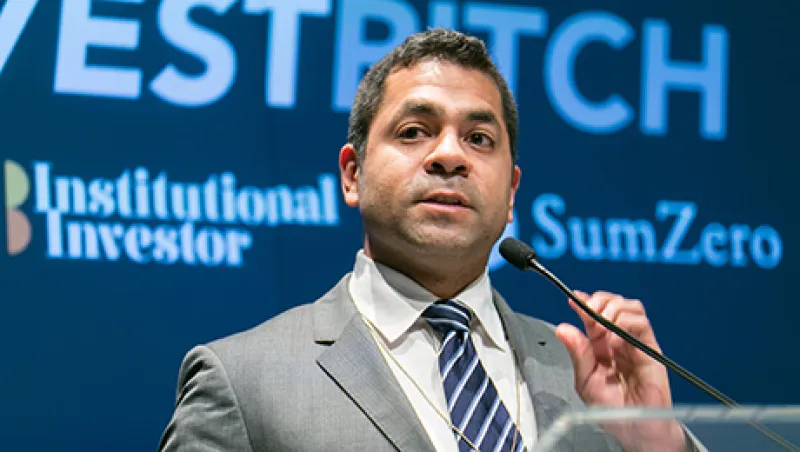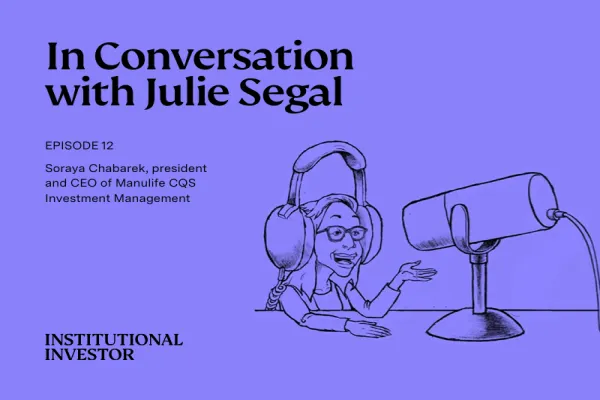Michael Zapata and Travis Cocke don’t appear to have much in common at first glance. Zapata, 36, spent ten years in the Navy, deploying seven times to the Middle East, before completing his MBA at Columbia University. Cocke, 27, is a young Houston entrepreneur with an undergraduate degree in finance from Texas A&M, although he says his real interest lies in the intersection of history, human psychology and finance.
What they do share is a passion for investing. It started early for Cocke, who says he has been a contrarian for as long as he can remember. Zapata remembers successfully picking a lucrative stock (Xerox Corp.) for a middle school class assignment, but says he wasn’t really pulled into investing until, upon leaving the military, he realized he could apply his skills in analyzing intelligence networks to finance. This shared interest has led both men past the naysayers and warning signs and into the turbulent world of hedge funds. With the growing sentiment that the U.S. stock market is overvalued and that the mostly mediocre returns by hedge funds don’t justify the high fees they charge, it’s a difficult time to be in the industry, particularly for emerging managers.
Zapata founded New York–based Sententia Capital Management in 2012 and has gathered $2 million in assets under management through a value-based approach. Cocke founded Voss Capital in Houston three years ago, targeting special situations and so-called deep value opportunities. His firm has $8.5 million in assets.
“It’s a chicken-and-egg dilemma,” says Cocke. “Most investors want your AUM to be larger before investing.”
Emerging hedge fund managers are always on the hunt for ways to stand out from the crowd. Monday evening, that shared goal found both Zapata and Cocke — as well as 18 other fund managers — at Bloomberg LP’s sleek New York headquarters for a speed-pitching event. InvestPitch, created by Institutional Investor and SumZero, an online network for investment professionals, and hosted by Bloomberg Tradebook, gave 20 portfolio managers four minutes each to convince an audience of investors of the value of going long or short a chosen security.
Cocke, for his part, was determined to cause a buzz at the event, urging investors to get in on the “Kush Rush” of medical marijuana. In a pitch sprinkled with marijuana puns, Cocke made the case for shorting GW Pharmaceuticals. The company is lauded as the market leader in the creation of cannabinoid prescription medicines, but while many investors believe GW will benefit from the growing acceptance of medical marijuana use in the U.S., Cocke argued just the opposite. The company is slowly working toward an FDA-approved therapeutic product, he said, while competitors receive legislative support around the U.S. for products like marijuana oils, which have performed better in medical studies and are subject to less regulatory scrutiny because they are lower in THC, the psychoactive chemical in marijuana. Competitors’ products are also cheaper than GW’s are expected to be.
The only other manager to recommend shorting a stock was Ian Clark, 28, who warned that a deepwater drilling bubble may be about to pop the share price of Transocean. Clark, of Scarsdale, New York–based Dichotomy Capital, argued that a glut of new rigs and reductions in capital expenditures by oil companies will depress the Switzerland-based contract driller’s earnings, predicting a 50 percent downside in its shares.
Other interesting pitches included one from Spencer Grimes, 48, of New Canaan, Connecticut–based Twinleaf Management, who recommended buying shares of E.W. Scripps Co. The company owns and operates newspapers and television stations around the U.S. and should benefit from record campaign ad spending leading up to the 2016 election, Grimes said, adding that its recently announced merger with newspaper, television and radio station conglomerate Journal Communications is a value booster as well. Grimes also predicted that the merger of Comcast and Time Warner Cable, should it be approved, will have a positive impact on Scripps because the cable giants are expected to have to sell a large chunk of Midwestern subscribers to a third company, which will likely end up paying roughly three times as much for Scripps’ broadcast signals in that region.
The former Navy SEAL Zapata put his money on rent-to-own furniture and appliance retailer Aaron’s. The Atlanta-based company’s “keep rate,” or rate of customers buying the products they rent, is more than double that of its primary competitor, Rent-A-Center, Zapata told II, and has higher cash flows and margins. Aaron’s is expanding fast, having recently acquired Progressive Finance Holdings, a Utah-based lease-to-buy company, and is currently trading below a $30 per share buyout offer from private equity firm Vintage Capital Management that it rejected earlier this year.
The InvestPitch winners won’t be announced until January 7, but it was clear from the comments of Gideon Berger, who heads up the hedge fund investment operation for Blackstone Alternative Asset Management (BAAM), that coming through on a promise to deliver an outsized return on one investment won’t necessarily help a hedge fund break away from the pack.
With $65 billion in discretionary assets, BAAM is the world’s largest allocator to hedge funds. Because it is so hard to find good ideas, and good managers, Berger told the audience, the firm emphasizes process over performance. “It’s crowded,” he explained. “It’s tough to find good ideas.”
Videos of the pitches will be published on InstitutionalInvestor.com beginning November 17. Sign up to be notified when new video pitches are live.






